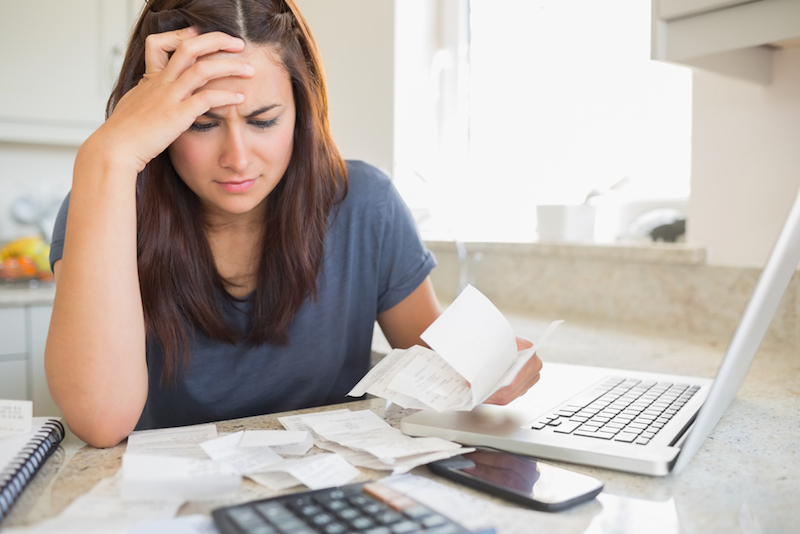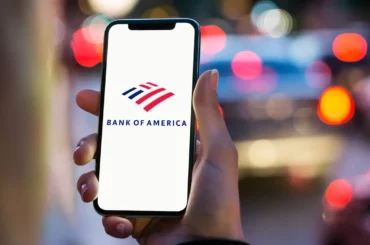Information presented on this web page is intended for informational and educational purposes only and is not meant to be taken as legal, financial, investment or tax advice. We do not accept any responsibility for any trading or investment related losses. Please review our disclaimer on before taking action based upon anything you read or see.
What happens if you owe the bank money and don’t pay? If you’re one of the many bank clients who often ask this question, this post will be pretty helpful. A non-priority debt is money owed to your bank. This implies that you won’t lose your home if you don’t pay your debts. However, you will be taken to court and ordered to pay what you owe, along with extra fines. If you owe the bank money and cannot pay, you will face a slew of additional problems.
According to the American Bankers Association, if you spend more money than you have in your account, your bank may or may not pay the transaction. The bank may cover the purchase and give you an overdraft fee in the best-case situation. The average overdraft cost is $35. The bank effectively charges you for a short-term “loan” to cover the activity. Your bank may impose a daily cap on the number of overdraft fees it may impose.
A bank may also safeguard your account by sending money from a connected account at the same bank, such as a checking account, to your overdrawn checking account automatically. They could also give an overdraft protection line of credit.
On the other hand, your bank has the option of rejecting a transaction and charging you a non-sufficient funds (NSF) premium. An NSF fee, which is usually the same as an overdraft fee, is charged by the bank. A merchant (such as a grocery shop) may charge a fee for a denied debit card transaction, or your landlord may charge a fee for a returned check, in addition to an NSF fee.
What Happens If you owe the Bank Money and Don’t Pay

On the subject of overdrafts, the numbers might be shocking. According to the Financial Health Network survey, Americans spent $12.4 billion in overdraft fees in 2020.
This equates to around $48 per adult in the United States. If you owe the bank money, this is only one of the numerous punishments you might face. Furthermore, if you fail to make due payments on ordinary consumer loans (such as a line of credit or a credit card), your bank will most likely charge you a fee for failing on (missing) payments. They may begin to disclose your defaults on your credit report. They could also perform the following things:
Raising your interest rate: After you’ve started missing payments, lending institutions often raise your interest rate, regrettably, it causes the account balance to grow much more significantly and quicker.
Assign the account to a collection agency: Once in-house collection departments begin contacting you, they may sell your profile to a third-party debt collection company. When dealing with collection agencies, many individuals feel scared and overwhelmed. You may get collection calls regularly too.
Remove money from your bank account: If you owe money to a bank (or one of the bank’s affiliates), the lender may deduct funds from your checking account for unpaid bills without telling you. This is also called the “right of offset.”
Start a legal case: If a creditor bank succeeds in prosecuting you in court, this might occur:
Wage garnishee: Your bank may get authorization to deduct funds immediately from your paycheck (or other income). You may also have to pay interest, fines, and legal expenses on top of what you owe.
Item seizure: Your bank may be able to put a lien on your property or even seize an asset outright, such as a car. If you fail to attend as necessary at a court hearing, your bank may petition the court to issue an arrest warrant, albeit this is uncommon.
What to do if you’re Constantly Overdrawn at the Bank

You may continue to use the same account for your day-to-day operations after paying off the sum you owe your bank. You should, however, consider taking a few precautions to prevent overdrawing your account again. These are some of the steps:
Enroll in low balance alerts.
When your bank balance goes below a specific level, many banks provide a feature that sends you an alert. If your balance goes below $50, $100, or whatever minimum amount you decide, you may set up an alarm to get an e-mail or text notification from our bank.
You’ll know exactly how much money you have in your account when you get an alert. This might assist you in planning for the future. An overdraft charge, for example, might come simply due to losing track of how much money you have on hand.
Keep your overdraft and regular banking accounts separate.
Struggling to pay off an overrun while continuing utilizing it on a regular basis is analogous to attempting to save a leaky boat that is still treading water. If you’re not using an overdraft to fund your living expenses, it’s considerably easier to return it. When you go to your bank about your overrun, they may propose opening a new account to keep your overdraft debt apart from your normal spending.
This will help you break free from the cycle of sliding in and out of your overdraft. It’s simple to track your spending and manage your overdraft as if it were any other loan.
Open a brand-new bank account.
If your bank cannot separate your overdraft debt from your main account, you may choose to open a new account with no overdraft with a bank with which you have no commitments.
You can deposit your earnings and manage your everyday spending with this new account. Your prior bank account will remain overdrawn, but you will be able to treat it as ordinary debt and keep it from the rest of your funds.
Begin paying down your overdraft amount.
This is the most challenging aspect. Making a plan is significantly simpler than adhering to it in the actual world. Sticking to your budget and paying your payments on time each month can help you achieve your goal. It will most likely be difficult at first, but you will get more motivated as your balance improves.
Unexpected occurrences might make sticking to your budget difficult, but a sensible budget can help you prepare for most of them. Thus, it is vital to account for all eventualities while constructing a budget.
Refuse to participate in the overdraft protection program.
You can only overdraw if you have chosen to use your bank’s overdraft service. Banks cannot charge you overdraft fees for card payments or ATM withdrawals if you opt out of this program.
Add a credit card to your account.
Most banks allow you to connect your checking account to a credit card or a savings account. This will assist you in covering payments if your checking account is in the red. While some banks charge a fee for this service, it saves a great deal of money you will otherwise spend on NSF or overdraft fees.
Keep a record of your expenditures
Before making any transactions or payments, you should maintain a running ledger and verify it. This has become much easier over time, particularly with the emergence of mobile banking. Regular monitoring of your account not only helps you avoid making errors but also enables you to identify charges you may have overlooked.
It’s crucial to keep in mind that monitoring your bank balance at an ATM or digitally may not always provide you with the most up-to-date information. That is why you should check your bank balances frequently.
Frequently Asked Questions
What happens if you owe the bank money and don’t pay
If you owe money to the bank and don’t pay it back, the bank will terminate your account and report you to the credit bureaus after a while. This will appear on your credit record as unpaid debts, which will impact your credit score. You will also be unable to create a new account with the financial institution.
What happens if you overdraw your account?
Your bank statement or online banking will show a negative balance if you fall into your overdraft. The bank will typically charge you costs if this occurs, so try to avoid it as much as possible.
Is it possible to terminate my account if it has a negative balance?
According to the Comptroller of the Currency Office, banks seldom terminate accounts with a negative balance. As a result, even if you ask for the account cancellation, your request will be ignored. It is also in a bad financial situation, and the financial institution is unlikely to cooperate. If you have a negative balance, you owe money to the bank.
What’s the deal with my negative bank account?
A negative balance, often known as an overdraft, occurs when you spend more money than you have available by:
- Making a payment.
- Making an electronic payment or an automated bill payment.
- Make a purchase using your debit card.
- Taking money out of an ATM.
Conclusion
In conclusion, owing money to the bank and failing to pay is not a good position. It isn’t, however, the end of the world. If this occurs to you, act swiftly to handle the situation and then devise a strategy to prevent it from happening again. With our tips above, you have learned what happens If you owe the bank money and don’t Pay.





